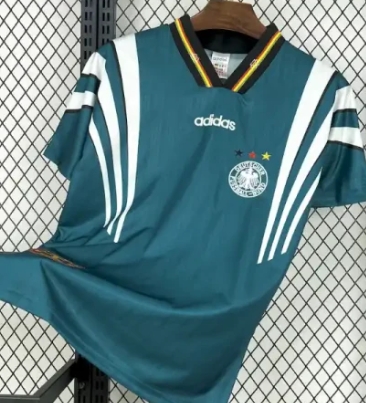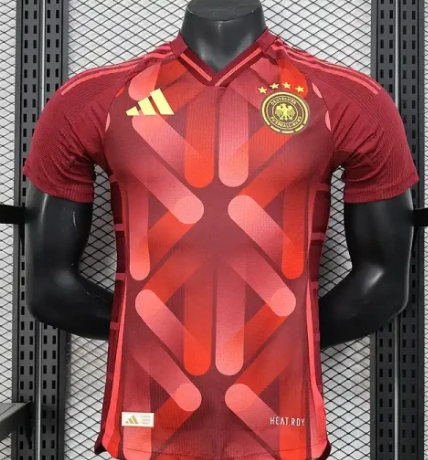Germany's national soccer team, known as "Die Mannschaft" (The Team), is one of the most successful and storied teams in the history of international football. The journey of German soccer is marked by incredible achievements, a deep-rooted passion for the game, and a legacy of resilience. From its early beginnings to its dominance in the World Cup and European competitions, Germany's soccer history is a fascinating narrative of talent, teamwork, and national pride.
The origins of soccer in Germany can be traced back to the mid-19th century when various forms of football were played across the country. The Deutscher Fußball-Bund (DFB), Germany's governing football association, was founded in 1900 in Leipzig. The first official match of the German national team occurred on April 5, 1908, against Switzerland, concluding in a 5-3 victory for Germany.
In its formative years, the national team played primarily friendly matches and competed in regional tournaments. However, the growth of soccer in Germany was interrupted by the events of World War I, which curbed international competitions and developments.
After WWI, the national team began establishing itself in international competitions. Germany participated in the first FIFA World Cup in 1930 in Uruguay but did not make a significant impact. However, the team qualified for the 1934 World Cup in Germany—where they reached the semifinals, marking the beginning of Germany's emergence as a footballing powerhouse.
The 1938 World Cup in France proved to be both a triumph and a tragedy. While the team qualified and defeated Switzerland, the political climate of Nazi Germany loomed over the event. It would be a long and difficult period for Germany’s national identity, with soccer becoming entwined with nationalistic pride during the Nazi regime, culminating in a distorted image of competition.
The post-war era presented challenges for German soccer, as the nation was divided into East and West. The national team from West Germany began to flourish, focusing on rebuilding and creating a new identity for the sport. In 1954, West Germany achieved its first World Cup title in Switzerland, famously known as “The Miracle of Bern.” The team, greatly underestimated, defeated Hungary 3-2 in the final, cementing its status as a formidable force in international soccer.
The 1960s were marked by changes within German soccer. West Germany reached the quarterfinals of the 1962 World Cup but ultimately fell short of repeating their previous success. However, the team’s fortunes improved as they prepared for the 1966 World Cup in England. In a dramatic final against the host nation, West Germany lost to England 4-2 after extra time, a result that further fueled their ambitions for future success.
germany soccer jerseys football YUPOO china B2B2C Wholesale Supplier Branded national germany soccer jerseys retro shirts, join us on whatsapp | Yupoo fashion national germany soccer jerseys players jerseys football retro jerseys reseller online store , Yupoo jerseys Replica top version for yupoo wholesale drop shipping jerseys to worldwide.
The 1970s marked the apex of West German soccer, culminating in another World Cup title. Under the guidance of coach Helmut Schön, the team showcased an extraordinary blend of talent and discipline. The pivotal moment came during the 1974 FIFA World Cup held in West Germany. The team defeated the Netherlands 2-1 in a gripping final, with goals from Paul Breitner and Gerd Müller.
This victory solidified Germany’s status in international soccer and served as a turning point for the nation’s identity, embracing a blend of athletic prowess and tactical innovation. Following this success, West Germany also won the UEFA European Championship in 1972, further establishing their dominance in European football.
The 1980s were relatively successful for Germany as the national team continued to perform well in international competitions. West Germany reached the semifinals of the 1982 World Cup in Spain, ultimately losing to Italy. However, they bounced back and claimed their third European Championship title in 1980.
In the 1986 World Cup in Mexico, the team reached the final once again. Although they lost to Argentina, the match marked the emergence of a young and dynamic squad that included talents like Lothar Matthäus and Rudi Völler.
The 1990 FIFA World Cup was particularly significant, marking a moment of reunification for Germany as East and West joined together. Under coach Franz Beckenbauer, the national team displayed a strong performance, ultimately facing Argentina in the final once more. This time, Germany emerged victorious with a 1-0 win, courtesy of Andreas Brehme’s penalty kick, securing their third World Cup title.
This victory not only reignited national pride and unity post-reunification but also showcased Germany’s resilience and tactical prowess on the international stage.
However, the 2000s began with challenges for the national team, particularly with the disappointing performance at the 2000 UEFA European Championship and subsequent World Cup

